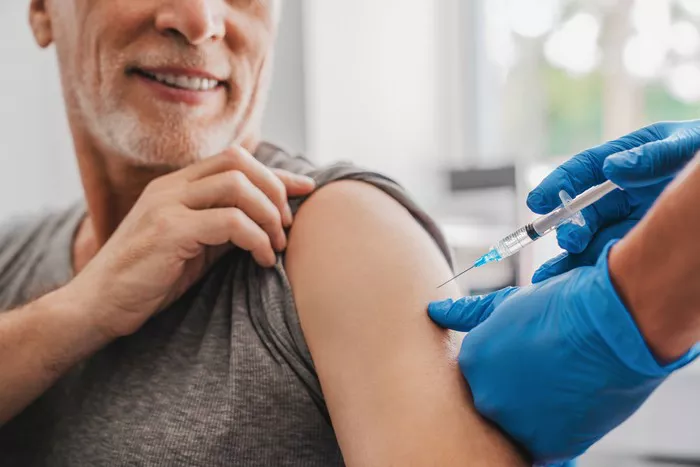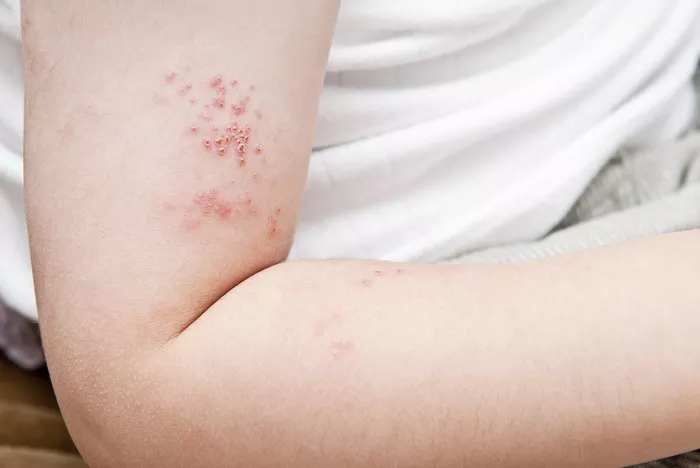Skin conditions can often be perplexing, especially when their symptoms overlap or mimic each other. Seborrheic dermatitis and psoriasis are two such conditions that can cause confusion due to their similar manifestations. However, they are distinct disorders with differing underlying causes, treatment approaches, and prognoses. Understanding the characteristics of each condition is crucial for accurate diagnosis and effective management. In this article, we delve into the intricacies of seborrheic dermatitis and psoriasis, highlighting their disparities and commonalities to aid healthcare professionals and patients in navigating these dermatological challenges.
What is Seborrheic Dermatitis?
Seborrheic dermatitis is a chronic inflammatory skin condition characterized by redness, scaling, and itching, primarily affecting areas rich in sebaceous glands, such as the scalp, face, and upper trunk. It often presents with greasy or oily-looking patches of skin, accompanied by dandruff or flakiness. While the exact cause of seborrheic dermatitis remains unclear, various factors, including genetic predisposition, hormonal fluctuations, fungal overgrowth (specifically Malassezia species), and immune system dysfunction, are believed to contribute to its development.
Understanding Psoriasis
Psoriasis, on the other hand, is a chronic autoimmune disorder that accelerates the life cycle of skin cells, leading to the rapid accumulation of cells on the skin’s surface. This excessive cell turnover results in the formation of thick, red patches covered with silvery scales, commonly appearing on the scalp, elbows, knees, and lower back. Unlike seborrheic dermatitis, psoriasis is primarily driven by an overactive immune response, wherein the immune system mistakenly targets healthy skin cells, triggering inflammation and abnormal cell proliferation.
Distinguishing Between Seborrheic Dermatitis and Psoriasis
While seborrheic dermatitis and psoriasis share certain clinical features, several key characteristics differentiate the two conditions:
1. Distribution of Lesions: Seborrheic dermatitis typically affects areas rich in sebaceous glands, such as the scalp, eyebrows, sides of the nose, and central chest, while psoriasis lesions commonly appear on extensor surfaces, including the elbows, knees, and lower back.
2. Appearance of Lesions: Seborrheic dermatitis lesions often manifest as greasy or oily patches with yellowish scales, whereas psoriasis lesions present as raised, well-defined plaques covered with silvery-white scales.
3. Associated Symptoms: Patients with seborrheic dermatitis may experience itching and mild discomfort, whereas individuals with psoriasis may suffer from itching, pain, and sometimes, joint stiffness or swelling (psoriatic arthritis).
4. Histopathological Features: Biopsy findings in seborrheic dermatitis typically reveal spongiosis, parakeratosis, and a mixed inflammatory infiltrate with predominant lymphocytes, whereas psoriasis is characterized by epidermal hyperplasia, elongation of rete ridges (acanthosis), and neutrophilic infiltration in the epidermis (Munro microabscesses).
5. Age of Onset: Seborrheic dermatitis often presents in infancy (cradle cap) or adulthood, with peak incidence in the fourth and fifth decades of life, whereas psoriasis commonly develops between the ages of 15 and 35 years, although it can occur at any age.
Diagnostic Approach
Diagnosing seborrheic dermatitis and psoriasis relies on clinical evaluation, medical history assessment, and, in some cases, additional diagnostic tests. Dermatologists typically examine the affected skin and inquire about symptoms, family history, and potential triggers. While the clinical presentation may suffice for straightforward cases, challenging or atypical presentations may necessitate skin biopsies, fungal cultures, or other laboratory investigations to confirm the diagnosis and rule out other skin conditions.
Treatment Strategies
Treatment strategies for seborrheic dermatitis and psoriasis aim to alleviate symptoms, reduce inflammation, and prevent disease recurrence. Although both conditions are chronic and incurable, various therapeutic modalities can effectively manage their symptoms:
1. Topical Therapies: Mild cases of seborrheic dermatitis and psoriasis may respond well to topical treatments, including corticosteroids, calcineurin inhibitors, coal tar preparations, salicylic acid, and antifungal agents.
2. Phototherapy: Phototherapy, particularly narrowband ultraviolet B (UVB) therapy, can benefit patients with moderate to severe psoriasis by suppressing immune-mediated skin inflammation and promoting skin cell turnover.
3. Systemic Medications: In cases of severe or refractory disease, systemic medications such as oral retinoids, methotrexate, cyclosporine, or biologic agents (e.g., TNF-alpha inhibitors, IL-17 inhibitors) may be prescribed to dampen the autoimmune response and mitigate disease progression.
4. Lifestyle Modifications: Lifestyle modifications, including stress management, dietary adjustments, and proper skincare practices, can complement medical therapy and help reduce disease exacerbations in both seborrheic dermatitis and psoriasis.
5. Patient Education and Support: Providing patients with comprehensive education about their condition, treatment options, and self-care strategies is crucial for promoting treatment adherence and improving overall disease outcomes.
Conclusion
Seborrheic dermatitis and psoriasis are distinct dermatological conditions with overlapping clinical features but differing pathophysiological mechanisms. While seborrheic dermatitis primarily involves sebaceous gland dysfunction and fungal colonization, psoriasis is characterized by immune dysregulation and aberrant keratinocyte proliferation. Recognizing the nuances between these conditions is paramount for accurate diagnosis and tailored management. By employing a multidisciplinary approach encompassing clinical evaluation, diagnostic testing, and personalized treatment plans, healthcare professionals can effectively address the unique needs of patients with seborrheic dermatitis and psoriasis, thereby enhancing their quality of life and dermatological well-being.



























